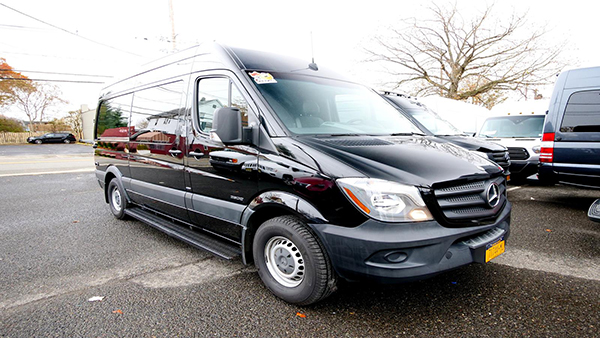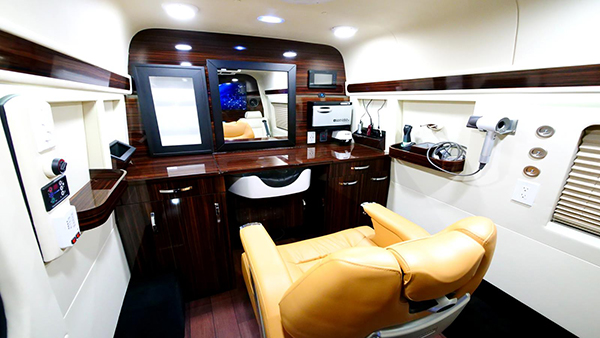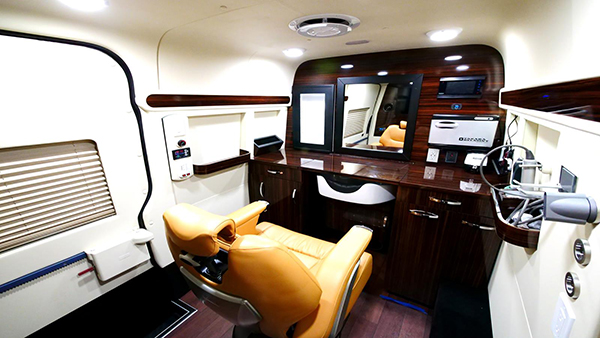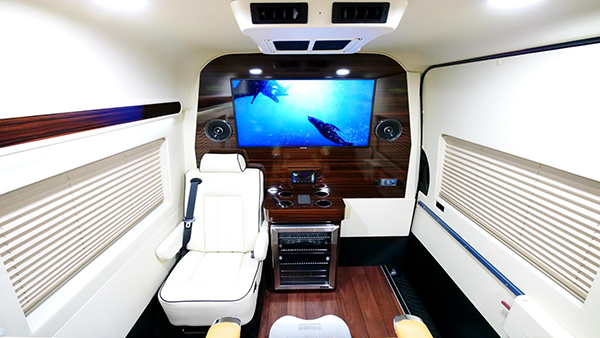There are plenty of reasons to choose a barbershop over a hair salon. For starters, people working in barbershops usually have more experience when it comes to doing a face shave. It’s also cheaper to get your hair cut in a barbershop than a salon, although, that’s probably not going to be the case if your barbershop of choice has four wheels and a Mercedes-Benz badge on the front.

Built by HQ Custom Design, this bespoke mobile barbershop conversion exists inside of a Mercedes-Benz Sprinter van. As you can see, it’s got everything from a full-size barber chair, plumbing, tools, plus plenty of space for various hair products.

Slide open the motorized door and you’ll find custom white upholstery with a soundproof front partition wall, wood-like flooring, custom-made wood laminated countertops, a large sink with running hot/cold water, and of course that spectacular chair that also reclines and swivels. Just about everything you might find when visiting a regular retail shop, possibly minus the everyday banter.

Other interior highlights include the 32-inch TV, Wi-Fi connectivity, LED ambient lighting, window shades and onboard electrical components such as lithium batteries, custom battery tray, 3,000W power inverter and a diesel heater.
This conversion can be done for either a cargo version of the Sprinter or the passenger version – as both are able to provide hairstylists and barbers with plenty of space when working on their clients.

“We have worked with a wide array of professional barbers, hairstylists, and nail technicians to customize these types of mobile work units,” said the New Jersey-based tuner, which also specializes in Ford Transits, Cadillac Escalades and Lincoln Navigators.
The only question we have is what type of individual would actually require a mobile barbershop? Perhaps somebody very wealthy who is literally always on the move, like a successful businessman? If you live your life constantly saying to yourself that “time is money”, then sure, we can imagine it might be somewhat inconvenient to sit stationary for 30 minutes to an hour in a regular brick and mortar barbershop.
Mercedes-Benz Sprinter Mobile Luxury Barbershop
27/11/2021
No Comments
Mercedes-Benz | Mercedes-AMG
Click to rate this post
[Total: 1 Average: 5]